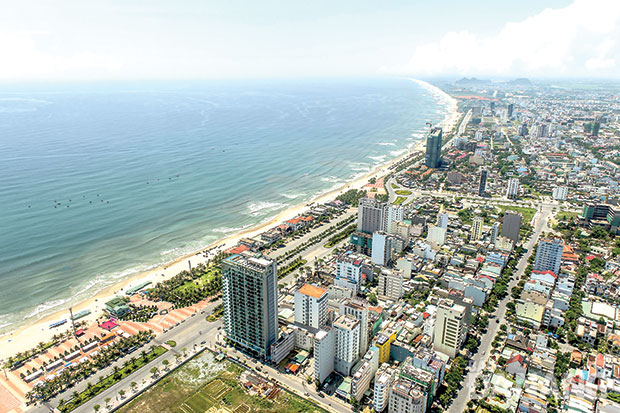National government approves special mechanisms for Da Nang
The national government has recently approved special mechanisms for Da Nang concerning investment, finance, budgetary status and decentralisation.
 |
| A prosperous corner of the city |
The intention is to help Da Nang become one of the largest urban areas in Viet Nam and a major hub of industry, trade and services in the central region by 2020, creating a strong momentum for boosting the progress of the central region and highlands.
Under the mechanisms, the focus will be on promoting decentralisation for the city in combination with upholding the responsibilities of the People’s Council and the People’s Committee at municipal level. More effective measures will be taken to help the city fully tap its great potentials and strengths to fulfil its local socio-economic tasks in the years ahead.
With regard to the use of ODA capital, Da Nang will be allowed to access loans from domestic financial sources through the issuance of local government bonds, as well as loans from the national government’s budget and other related sources in compliance with the national laws. However, the outstanding loans must never exceed 40% of the city’s proportion of its annual tax revenue collections.
Funds from the national government’s budget will be given to the city to deploy local public-private partnership (PPP) projects, ensuring closer links between local areas. Also, sufficient supplementary capital from the national budget will go to the deployment of socio-economic development projects in the city, and ones bolstering the progress of the central region and highlands.
The municipal People’s Committee will be permitted to approve local projects and directly receive non-refundable ODA capital and financial aid from foreign non-government organisations to implement its projects, with no regard to the amount of aid.
The Ministry of Finance and other national government agencies will advise the national government about regulations for allowing Da Nang to use a reasonable proportion of its annual tax revenues to further the socio-economic growth of the city, and the central region and highlands as a whole.
The city authorities will subsidise a part of the loan interest rates for local individuals and organisations to deploy important local socio-economic projects.
Furthermore, the national government has given the go-ahead for the local authorities to sell the existing State-owned social housing apartments to local residents. The money collected from the sales will be spent on developing more social housing projects in the years ahead. The municipal People’s Committee must submit reports about these projects to the Ministry of Construction for approval.